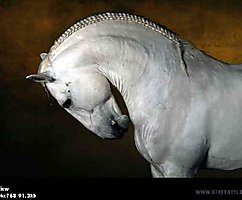Very curious. Russian catch phrase: the secret meaning
 Bashny.Net
Bashny.Net
All we know about expressions that always use? Sometimes too little. But for each of them there is a story, sometimes fascinating, and sometimes tragic.
Ivan, kinship is not rememberingthe Fugitives from the Royal prison, the serfs, who fled from the landowner, the soldiers, who bore no gravity conscription, cultists and other "undocumented wanderer, falling into the hands of the police, carefully concealed his name and origin. All the questions are answered that call them "Ivan" and "his kindred" (i.e. origin) they don't remember.
In black and whiteUntil the mid XIV century, books in Russia were written on parchment, which is made from the skin of young lambs, calves and goat kids. The skin in the process acquired a white color. As ink from the XII century used a mixture of the sulfate salt of iron ink nut. The solution of such ink has dried on the surface of a visible layer. Labor-intensive production process and high spiritual significance of the books in that time created a high isklyuchitelnyy authority everything that is written "black on white".
To pound water in a mortar
Only now the aliens must not have heard arguments about the miraculous properties of water. She supposedly remembers information kristallizuetsya in the amazing stars and mnogogranniki – all Japanese told and the film was shown. Our people from the Japanese is not far away: from ancient pagan times to the water whispered, in anticipation of further wonders. Negative – if the bad nabolese, strictly positive – if good wish. But suddenly the source is already someone said something? Especially when slipped or dropped the jug. And the water-it remembers everything! And the priests with shamans invented a method of removing liquids from unnecessary information. Water long and hard pounded-milled into a bowl hollowed from a tree trunk. And after several days of torment was to whisper a spell, and all sorts of zagovornye drink to change skins or is there belts embroidered. But, apparently, does not always work it was a small potion. Because expression gradually became a symbol of completely useless classes.
BuffoonCharacter in European medieval theatre, the jester wore a striped suit, a hat with donkey ears, and the hand holding the rattle — wand tied to her bullish bubble, namelennym peas. (By the way, from the mentioned dichroic suit matter recorded in the dictionary Dahl the expression "clown stripe".)
The performances of clown in the audience always began with the sound of this rattle, and during the performance he even bashed and the other characters and the audience. Going back to peas: Russian clowns have adorned themselves with pea straw, and on Shrove Tuesday a straw effigy of the clown drove the streets.
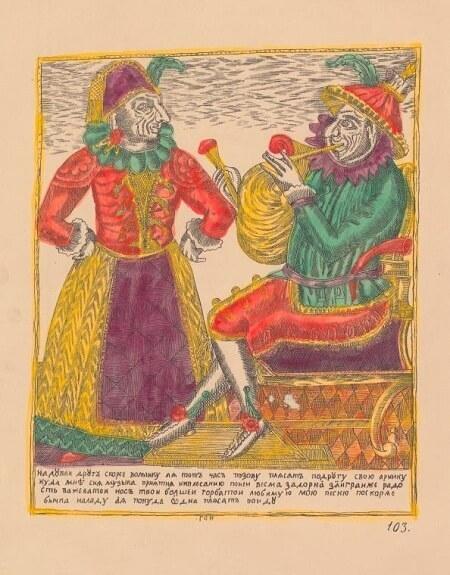
Pull the GIMPWhat is GIMP and why it is necessary to pull? It is copper, silver or gold thread used in goldwork is embroidery patterns on clothes and carpets. Produced such a thin thread by pulling multiple rolling and stretching through the smaller holes. Pulling rigmarole was a very laborious task, requiring much time and patience. In our language the expression of stalling was fixed in a figurative sense – to do something long and tedious, and the result is not immediately visible.
To divide a skin of not killed bearit is Noteworthy that in the 30-ies of XX century in Russia it is accepted to speak: "Sell the skin of not killed bear". This version of the expression seems to be more close to the original, and more logical, because "divided" skins no good, it is valued only when it remains intact. Source — the fable "the bear and the two comrades" of the French poet and fabulist Jean La Fontaine (1621 -1695).
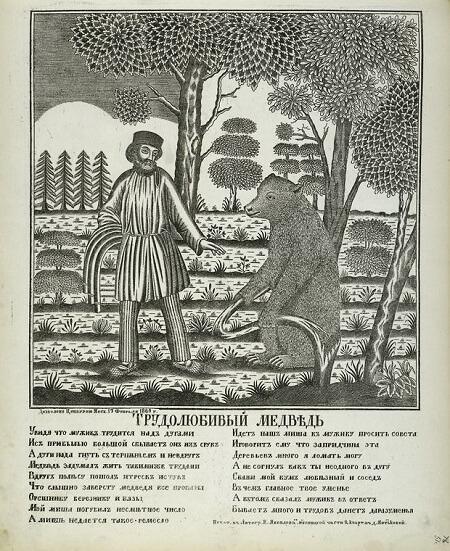
Eaten a dogFew people know that originally this expression was originally a pronounced ironic character. The saying is: the dog ate, and tail choked. So talking about a man who has accomplished hard work, and tripped on nothing.
Idiom dog ate currently used as characteristics of a person with extensive experience in any case.
To shout in all IvanovoIn the old square in the Kremlin, on which stands the bell tower of Ivan the Great, was called Ivanovo. The clerks announced decrees, orders and other documents relating to residents of Moscow and of all Russia's peoples. That all was well heard, the clerk was reading very loudly, screaming in all Ivanovo.
To wash dirty linen in public, Again a case of so-called witchcraft. We are now unclear on what to do with then this is the litter to save money in the house? And before it was decided to burn it in the furnace. First, the garbage trucks had not been invented, and secondly, the magical effect was one of the main ways of suggestion after brute force. As a connoisseur of fine magical matters, in the belief that he could sweep his nose over the garbage, to learn all the ins and outs of its owners. Well, to hurt itself and to the cemetery to bury that even with terrible consequences. Gradually to believe in the passion to stop people, but to speak about a COP and still nothing, they say, to make their secrets public.
All work and no playIn the XVII century the most popular pastime was falconry, the Tsar Alexey Mikhailovich was an avid fan of this leisure time went on it almost daily except the winter months and even issued a decree on the preparation of the rule book on falconry.
By order of the king in 1656 was even compiled a guide to fun and it was called "Book glagolemaya Sergeant: the new order and the dispensation of the rite sokolnicza way."
In "Constable"in every possible way praised hunting, contribute to overcome the various troubles and sorrows, to do which were ordered often and at any time. However, Alexis has decided that it's too obvious preference of hunting-the fun is harmful for the state and did at the end of the Preface handwritten PostScript. It said: "...the military regime nikolija (not) posibilite: all work and no play".
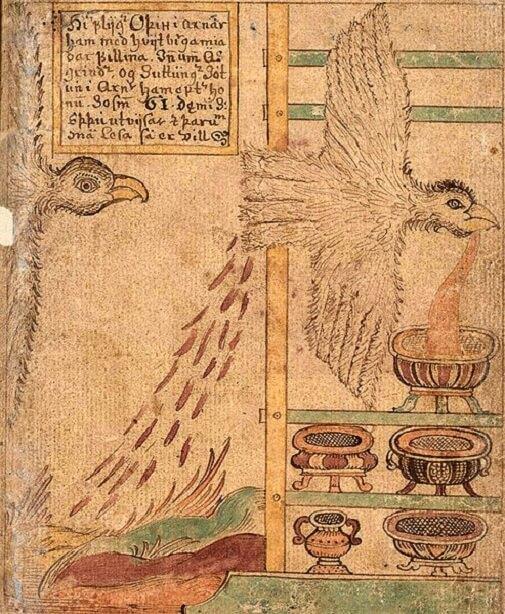
Where Makar calves not chasingOne of the versions of the origin of this adage is this: Peter was in a working trip to the Ryazan land and "informal" contact with people. It so happened that all encountered him in the ways of men said Macari. The king at first was very surprised, and then said: "Be you all now Macari!" Supposedly since then, "Makar" has become a collective image of the Russian peasant and farmers (not only in Ryazan) were called Macari.
Good riddanceIn one of the poems of Ivan Aksakov, you can read about the way that "straight as an arrow, broad surface that the tablecloth is laid down". So in Russia was off on a long journey, and no evil sense they have not invested. This is the original meaning of the idiom is present in the Explanatory dictionary Ozhegova. But it is said that in contemporary language the expression is meaning the opposite: "the Expression of indifference to someone's care, leaving and also the desire to get out there, anywhere." A great example of how ironically reinterpreted in the language of sustainable etiquette.
To dance from the stoveto Dance from an oven is to act at once and forever to the approved plan, without applying any of the knowledge and intelligence. This expression became known Russian writer of the nineteenth century Vasily Sleptsov and his book "a Good man". This is the story of Sergei Terebenev, who returned to Russia after a long absence. Return awakened in his childhood memories, the most vivid of which is the dance lessons.
He was standing by the stove, his feet in the third position. Parents, domestic servants are close by and watching his progress. The teacher gives the command: "One, two, three." Sergei began to take the first step, but suddenly he knocked tact, all left feet.
— Eh, you, brother! – reproachfully said the father. – Well, go about five to the stove, start again".
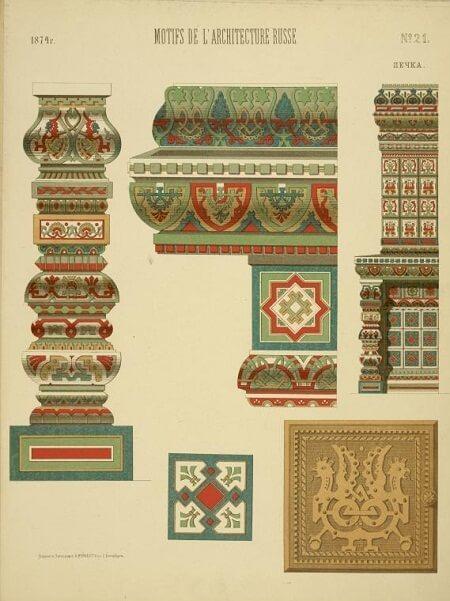
Learn all the ins and outs, In principle, the phrase is not that lost value, but lost the creepy relationship with his source. And it was born not just anywhere, but in a torture chamber. When the suspect was caught, strong and mentally stable, and had not confessed, the executioner said, ""I will Not say the genuine truth, will tell the inside story". Then it was to say goodbye. There were other options of torture not less painful. Apparently, they were quite effective, because the expression has been preserved, only about scary true sense, people were quick to forget.
To committhis expression is the opposite – it gives one self-mutilation and aggression. The unfortunate schoolboy, in front of the nose, swinging the menacing finger of the teacher, probably, and imagine how the axe is stored on the protruding part of his face. In fact, the nose is a small wooden plaque. Illiterate peasants did her zarobotki, so as not to forget any important thing or scratched drawings explaining the essence of this case.
Playing in the sandboxIn the village this game captures the whole family. The main thing – for her it was not necessary any investment. Took straws and put in a pile and take out one stick, so that others are not disturbed. Kind of like the opposite of Tetris. Then this activity required money investment. Spirited entrepreneurs began to produce sets of sticks and the special hooks to pull. And later sets began to make out tiny figures: teapots, ladders, horses. There was a toy even the Royal family. And it is not clear then how it became an expression synonymous with stupid, useless classes. And fine motor skills?
Hot spotthe Expression "hot spot" is found in the Orthodox funeral prayer ("in the space zlacinim in place pokoyem..."). So in the texts in the Church Slavonic language is called Paradise.
Ironically reinterpreted the meaning of this expression raznochintsy-democratic intelligentsia of the times of Alexander Pushkin. Language game was that our climate does not allow to grow grapes, so in Russia, alcohol drink made mainly from grain (beer, vodka). In other words so hot – drunk.

Seven Fridays in the weekIn the old days, Friday was market day, which was made to execute various trading obligations. On Friday, goods received, and the money he agreed to give the next market day (Friday next week). Violators similar promises, said that they have seven Fridays in the week.
But this is not the only explanation! Friday was early considered free from work during the day, so such a phrase characterized the bum, whose every day is a day off.
Up in the writingthere are two interpretations, one "serious" of the other. First, a pitchfork in Russia called mermaids. It is not clear how would the girls know how to write, but seeing their predictions written on the water, you can be sure that everything will come true.
Also the fork was an instrument of the Magi, and after this mundane agricultural tool. Three tip meant the nature of God Triglav, and existed as a large fork, like a staff, and a small bone in the palm. And those things the priests, the Charter to whisper out the spell on the water. Maybe it even pre-pounded. But what's the point? Still forgot about their works, and over the pitchfork write only scoff.
Cut a slicethe saying is: "Cut a slice back will not stick". Daughter issued in foreign lands; the separated and healed his house a son; a recruit who Boad forehead – all sliced slices, to see-it is no wonder, as one family can no longer live.
There is another important point: in the old bread, symbolizing prosperous life, in no case did not cut, but only broke his hands (hence the word hunk). So the phrase "cut a slice" – a real historical oxymoron.
UncomfortableSaying this has arisen through a misunderstanding. "Not at ease" is a wrong translation of the French "ne pas dans son assiette". The word assiette ("state") confused with its homonym – "plate". This saying by chance chose Griboedov for the triumph of "kitsch" in his work "Woe from wit". "My dear, you are not at ease," says Famusov Caccomo. And we can only laugh!
A stitch"wet", we're talking about extreme poverty. But it is saying to the birds is irrelevant. While ornithologists argue that the falcons do during molting lose their feathers and become almost naked!
"The Falcon" in old Russia was called a battering RAM, an instrument of iron or wood in the shape of a cylinder. It was hung on chains and swung, thus punching the walls and gates of fortresses of the enemy. The surface of this weapon was smooth and sleek, quite simply, naked.
The word "Falcon" in those days was called the instruments of cylindrical shape: scrap iron, pestle for grinding grain in a mortar, etc. Sokolov in Russia actively used until the advent of firearms in the late XV century.
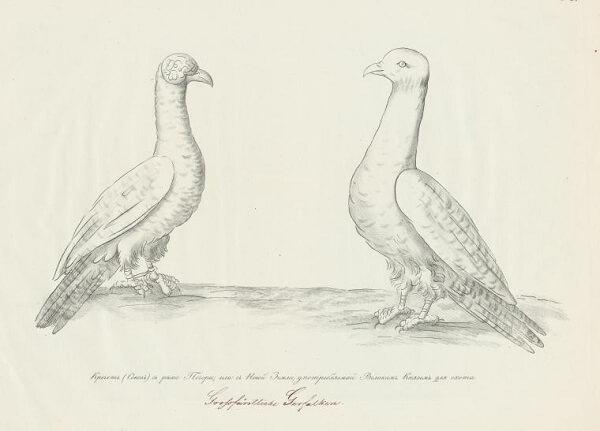
Assand seems goof that while black birds pecking vegetable crops, counts of thieves, instead of grabbing the stick. But the fact that the Raven was considered a bird of evil. As these birds do not disdain carrion, the people developed a clear formula of superstition: people+Raven = dead. For example, if the Raven sat on the roof and cawed in the house means someone will die. And if the devil sat on the winged cross Church, expect trouble for the entire village. So people looked with fear in his heart – where there sat a brazen bird. With the adoption of Christianity, the fear was on the wane. For example the Raven fed the prophet Elijah in the desert. So, here we go again – waste of time – croaking omens to count!
Shabby view ofthe Expression it appeared under Peter I and was associated with the name of the merchant Zatrapeznov, Yaroslavl linen manufactory which produced both silk and wool, in no way inferior in quality to the products of foreign factories. In addition to factory made and very very cheap hemp striped fabric – petrad, "satrapes" (rough to touch), which was on mattresses, trousers, tunics, women's scarves, smock and shirt.
And if rich people like this robe was a home clothes, then the poor things from satrapes clothing was considered "out". Shabby view talked about the low social status of the person.
Jingoistic patriotism isthe Expression introduced in a figure of speech Peter Vyazemsky. Under jingoistic patriotism means blind adherence to outdated and ridiculous "traditions" of national life and peremptory rejection of another, foreign, "not our".
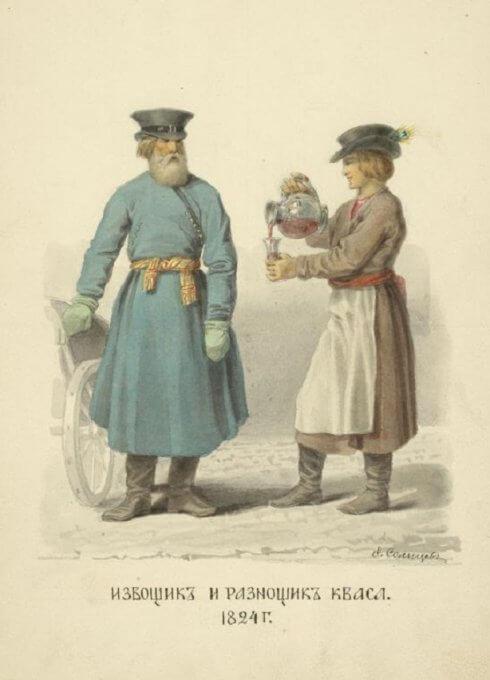
The book with seven seals
The history of this saying begins with the Bible. In the New Testament, in the revelation of St. John the Evangelist says: "And I saw in the right hand of him that sat on the throne a book written within and on the backside, sealed with seven seals. And I saw a strong angel proclaiming with a loud voice, who is worthy to open the scroll and to loose the seals thereof? And no man was able, neither in heaven, nor in earth, neither under the earth, to open the book, neither to look thereon".
To bring under the monasterythe origin of the turnover in question. Perhaps it arose because in the monastery usually left people with serious troubles in life. Perhaps because the Russian soldiers were let down the enemy under the walls of monasteries, turning in a time of war in the fortress. Perhaps this saying symbolizes the hard life of women in tsarist Russia. The presence of a noble relatives were once able to protect the woman from beating her husband. Relatives in such cases, went to seek the protection of the Patriarch and the authorities, and if it is found – then the wife let the husband under the monastery", ie, sent his "humility" in six months or a year.
On offended water carry, There are several versions of origin of this saying, but the most plausible seems to be the one connected with the history of St. Petersburg water carriers. The price of imported water in the nineteenth century was about 7 cents silver per year, and of course there were always greedy merchants who inflated the price to cash in. For this illegal act, such would-be entrepreneurs took the horse and forced to carry barrels in the truck for yourself.
Retired goats drummerIn the old days from the troupes main actor was a scholar, a trained bear, behind him marched, "goat", disguised with goat skin head and only "goat" – the drummer. His task was to beat a makeshift drum, calling the audience. To be interrupted by casual earnings or handouts – rather unpleasant, and then there's the "goat" is not a real, retired.
As the drunken goatIs an expression we find in Alexander Pushkin's novel in verse "Eugene Onegin" when it comes to neighbor Lensky — Zaretsky:
Horse Kalmyk swales,
As the drunken goat, and the French
Got captured...
The fact that in the Pskov region, where Pushkin has long been in exile, "zusa boys," called the pig. Generally "the drunken goat" analog colloquial expression "drunk as a pig".
Promised three years of waitingAccording to one version, a reference to the text of the Bible to the book of Daniel. It says: "blessed is he who waits and comes to the thousand and five and thirty days," i.e. three years and 240 days. The biblical call to patient waiting has been playfully reinterpreted in the people, because the saying is: "the Promised three years of waiting, and the fourth denied".
Also interesting: the Genus to which we came: Why is it necessary to preserve the roots and multiply traditions
The sacred meaning of tradition in the construction of a Russian izba
Sharashkina officeIts peculiar name office received from the dialectal word "Sarang" ("scum", "rabble", "the rogues"). In the old days the so-called questionable Association of crooks and liars, and today it's just disreputable, unreliable organization.
To put in a storeIn old Russia gum in Russia was not. So the pants at the waist held a special rope – "gashnikov". When someone or something was hiding the belt of his pants, said: "hid in the store".published
Author: Alex S. Zheleznov
Source: grimnir74.livejournal.com/7234566.html?utm_source=fbsharing&utm_medium=social
Ivan, kinship is not rememberingthe Fugitives from the Royal prison, the serfs, who fled from the landowner, the soldiers, who bore no gravity conscription, cultists and other "undocumented wanderer, falling into the hands of the police, carefully concealed his name and origin. All the questions are answered that call them "Ivan" and "his kindred" (i.e. origin) they don't remember.
In black and whiteUntil the mid XIV century, books in Russia were written on parchment, which is made from the skin of young lambs, calves and goat kids. The skin in the process acquired a white color. As ink from the XII century used a mixture of the sulfate salt of iron ink nut. The solution of such ink has dried on the surface of a visible layer. Labor-intensive production process and high spiritual significance of the books in that time created a high isklyuchitelnyy authority everything that is written "black on white".
To pound water in a mortar
Only now the aliens must not have heard arguments about the miraculous properties of water. She supposedly remembers information kristallizuetsya in the amazing stars and mnogogranniki – all Japanese told and the film was shown. Our people from the Japanese is not far away: from ancient pagan times to the water whispered, in anticipation of further wonders. Negative – if the bad nabolese, strictly positive – if good wish. But suddenly the source is already someone said something? Especially when slipped or dropped the jug. And the water-it remembers everything! And the priests with shamans invented a method of removing liquids from unnecessary information. Water long and hard pounded-milled into a bowl hollowed from a tree trunk. And after several days of torment was to whisper a spell, and all sorts of zagovornye drink to change skins or is there belts embroidered. But, apparently, does not always work it was a small potion. Because expression gradually became a symbol of completely useless classes.
BuffoonCharacter in European medieval theatre, the jester wore a striped suit, a hat with donkey ears, and the hand holding the rattle — wand tied to her bullish bubble, namelennym peas. (By the way, from the mentioned dichroic suit matter recorded in the dictionary Dahl the expression "clown stripe".)
The performances of clown in the audience always began with the sound of this rattle, and during the performance he even bashed and the other characters and the audience. Going back to peas: Russian clowns have adorned themselves with pea straw, and on Shrove Tuesday a straw effigy of the clown drove the streets.

Pull the GIMPWhat is GIMP and why it is necessary to pull? It is copper, silver or gold thread used in goldwork is embroidery patterns on clothes and carpets. Produced such a thin thread by pulling multiple rolling and stretching through the smaller holes. Pulling rigmarole was a very laborious task, requiring much time and patience. In our language the expression of stalling was fixed in a figurative sense – to do something long and tedious, and the result is not immediately visible.
To divide a skin of not killed bearit is Noteworthy that in the 30-ies of XX century in Russia it is accepted to speak: "Sell the skin of not killed bear". This version of the expression seems to be more close to the original, and more logical, because "divided" skins no good, it is valued only when it remains intact. Source — the fable "the bear and the two comrades" of the French poet and fabulist Jean La Fontaine (1621 -1695).

Eaten a dogFew people know that originally this expression was originally a pronounced ironic character. The saying is: the dog ate, and tail choked. So talking about a man who has accomplished hard work, and tripped on nothing.
Idiom dog ate currently used as characteristics of a person with extensive experience in any case.
To shout in all IvanovoIn the old square in the Kremlin, on which stands the bell tower of Ivan the Great, was called Ivanovo. The clerks announced decrees, orders and other documents relating to residents of Moscow and of all Russia's peoples. That all was well heard, the clerk was reading very loudly, screaming in all Ivanovo.
To wash dirty linen in public, Again a case of so-called witchcraft. We are now unclear on what to do with then this is the litter to save money in the house? And before it was decided to burn it in the furnace. First, the garbage trucks had not been invented, and secondly, the magical effect was one of the main ways of suggestion after brute force. As a connoisseur of fine magical matters, in the belief that he could sweep his nose over the garbage, to learn all the ins and outs of its owners. Well, to hurt itself and to the cemetery to bury that even with terrible consequences. Gradually to believe in the passion to stop people, but to speak about a COP and still nothing, they say, to make their secrets public.
All work and no playIn the XVII century the most popular pastime was falconry, the Tsar Alexey Mikhailovich was an avid fan of this leisure time went on it almost daily except the winter months and even issued a decree on the preparation of the rule book on falconry.
By order of the king in 1656 was even compiled a guide to fun and it was called "Book glagolemaya Sergeant: the new order and the dispensation of the rite sokolnicza way."
In "Constable"in every possible way praised hunting, contribute to overcome the various troubles and sorrows, to do which were ordered often and at any time. However, Alexis has decided that it's too obvious preference of hunting-the fun is harmful for the state and did at the end of the Preface handwritten PostScript. It said: "...the military regime nikolija (not) posibilite: all work and no play".

Where Makar calves not chasingOne of the versions of the origin of this adage is this: Peter was in a working trip to the Ryazan land and "informal" contact with people. It so happened that all encountered him in the ways of men said Macari. The king at first was very surprised, and then said: "Be you all now Macari!" Supposedly since then, "Makar" has become a collective image of the Russian peasant and farmers (not only in Ryazan) were called Macari.
Good riddanceIn one of the poems of Ivan Aksakov, you can read about the way that "straight as an arrow, broad surface that the tablecloth is laid down". So in Russia was off on a long journey, and no evil sense they have not invested. This is the original meaning of the idiom is present in the Explanatory dictionary Ozhegova. But it is said that in contemporary language the expression is meaning the opposite: "the Expression of indifference to someone's care, leaving and also the desire to get out there, anywhere." A great example of how ironically reinterpreted in the language of sustainable etiquette.
To dance from the stoveto Dance from an oven is to act at once and forever to the approved plan, without applying any of the knowledge and intelligence. This expression became known Russian writer of the nineteenth century Vasily Sleptsov and his book "a Good man". This is the story of Sergei Terebenev, who returned to Russia after a long absence. Return awakened in his childhood memories, the most vivid of which is the dance lessons.
He was standing by the stove, his feet in the third position. Parents, domestic servants are close by and watching his progress. The teacher gives the command: "One, two, three." Sergei began to take the first step, but suddenly he knocked tact, all left feet.
— Eh, you, brother! – reproachfully said the father. – Well, go about five to the stove, start again".

Learn all the ins and outs, In principle, the phrase is not that lost value, but lost the creepy relationship with his source. And it was born not just anywhere, but in a torture chamber. When the suspect was caught, strong and mentally stable, and had not confessed, the executioner said, ""I will Not say the genuine truth, will tell the inside story". Then it was to say goodbye. There were other options of torture not less painful. Apparently, they were quite effective, because the expression has been preserved, only about scary true sense, people were quick to forget.
To committhis expression is the opposite – it gives one self-mutilation and aggression. The unfortunate schoolboy, in front of the nose, swinging the menacing finger of the teacher, probably, and imagine how the axe is stored on the protruding part of his face. In fact, the nose is a small wooden plaque. Illiterate peasants did her zarobotki, so as not to forget any important thing or scratched drawings explaining the essence of this case.
Playing in the sandboxIn the village this game captures the whole family. The main thing – for her it was not necessary any investment. Took straws and put in a pile and take out one stick, so that others are not disturbed. Kind of like the opposite of Tetris. Then this activity required money investment. Spirited entrepreneurs began to produce sets of sticks and the special hooks to pull. And later sets began to make out tiny figures: teapots, ladders, horses. There was a toy even the Royal family. And it is not clear then how it became an expression synonymous with stupid, useless classes. And fine motor skills?
Hot spotthe Expression "hot spot" is found in the Orthodox funeral prayer ("in the space zlacinim in place pokoyem..."). So in the texts in the Church Slavonic language is called Paradise.
Ironically reinterpreted the meaning of this expression raznochintsy-democratic intelligentsia of the times of Alexander Pushkin. Language game was that our climate does not allow to grow grapes, so in Russia, alcohol drink made mainly from grain (beer, vodka). In other words so hot – drunk.

Seven Fridays in the weekIn the old days, Friday was market day, which was made to execute various trading obligations. On Friday, goods received, and the money he agreed to give the next market day (Friday next week). Violators similar promises, said that they have seven Fridays in the week.
But this is not the only explanation! Friday was early considered free from work during the day, so such a phrase characterized the bum, whose every day is a day off.
Up in the writingthere are two interpretations, one "serious" of the other. First, a pitchfork in Russia called mermaids. It is not clear how would the girls know how to write, but seeing their predictions written on the water, you can be sure that everything will come true.
Also the fork was an instrument of the Magi, and after this mundane agricultural tool. Three tip meant the nature of God Triglav, and existed as a large fork, like a staff, and a small bone in the palm. And those things the priests, the Charter to whisper out the spell on the water. Maybe it even pre-pounded. But what's the point? Still forgot about their works, and over the pitchfork write only scoff.
Cut a slicethe saying is: "Cut a slice back will not stick". Daughter issued in foreign lands; the separated and healed his house a son; a recruit who Boad forehead – all sliced slices, to see-it is no wonder, as one family can no longer live.
There is another important point: in the old bread, symbolizing prosperous life, in no case did not cut, but only broke his hands (hence the word hunk). So the phrase "cut a slice" – a real historical oxymoron.
UncomfortableSaying this has arisen through a misunderstanding. "Not at ease" is a wrong translation of the French "ne pas dans son assiette". The word assiette ("state") confused with its homonym – "plate". This saying by chance chose Griboedov for the triumph of "kitsch" in his work "Woe from wit". "My dear, you are not at ease," says Famusov Caccomo. And we can only laugh!
A stitch"wet", we're talking about extreme poverty. But it is saying to the birds is irrelevant. While ornithologists argue that the falcons do during molting lose their feathers and become almost naked!
"The Falcon" in old Russia was called a battering RAM, an instrument of iron or wood in the shape of a cylinder. It was hung on chains and swung, thus punching the walls and gates of fortresses of the enemy. The surface of this weapon was smooth and sleek, quite simply, naked.
The word "Falcon" in those days was called the instruments of cylindrical shape: scrap iron, pestle for grinding grain in a mortar, etc. Sokolov in Russia actively used until the advent of firearms in the late XV century.

Assand seems goof that while black birds pecking vegetable crops, counts of thieves, instead of grabbing the stick. But the fact that the Raven was considered a bird of evil. As these birds do not disdain carrion, the people developed a clear formula of superstition: people+Raven = dead. For example, if the Raven sat on the roof and cawed in the house means someone will die. And if the devil sat on the winged cross Church, expect trouble for the entire village. So people looked with fear in his heart – where there sat a brazen bird. With the adoption of Christianity, the fear was on the wane. For example the Raven fed the prophet Elijah in the desert. So, here we go again – waste of time – croaking omens to count!
Shabby view ofthe Expression it appeared under Peter I and was associated with the name of the merchant Zatrapeznov, Yaroslavl linen manufactory which produced both silk and wool, in no way inferior in quality to the products of foreign factories. In addition to factory made and very very cheap hemp striped fabric – petrad, "satrapes" (rough to touch), which was on mattresses, trousers, tunics, women's scarves, smock and shirt.
And if rich people like this robe was a home clothes, then the poor things from satrapes clothing was considered "out". Shabby view talked about the low social status of the person.
Jingoistic patriotism isthe Expression introduced in a figure of speech Peter Vyazemsky. Under jingoistic patriotism means blind adherence to outdated and ridiculous "traditions" of national life and peremptory rejection of another, foreign, "not our".

The book with seven seals
The history of this saying begins with the Bible. In the New Testament, in the revelation of St. John the Evangelist says: "And I saw in the right hand of him that sat on the throne a book written within and on the backside, sealed with seven seals. And I saw a strong angel proclaiming with a loud voice, who is worthy to open the scroll and to loose the seals thereof? And no man was able, neither in heaven, nor in earth, neither under the earth, to open the book, neither to look thereon".
To bring under the monasterythe origin of the turnover in question. Perhaps it arose because in the monastery usually left people with serious troubles in life. Perhaps because the Russian soldiers were let down the enemy under the walls of monasteries, turning in a time of war in the fortress. Perhaps this saying symbolizes the hard life of women in tsarist Russia. The presence of a noble relatives were once able to protect the woman from beating her husband. Relatives in such cases, went to seek the protection of the Patriarch and the authorities, and if it is found – then the wife let the husband under the monastery", ie, sent his "humility" in six months or a year.
On offended water carry, There are several versions of origin of this saying, but the most plausible seems to be the one connected with the history of St. Petersburg water carriers. The price of imported water in the nineteenth century was about 7 cents silver per year, and of course there were always greedy merchants who inflated the price to cash in. For this illegal act, such would-be entrepreneurs took the horse and forced to carry barrels in the truck for yourself.
Retired goats drummerIn the old days from the troupes main actor was a scholar, a trained bear, behind him marched, "goat", disguised with goat skin head and only "goat" – the drummer. His task was to beat a makeshift drum, calling the audience. To be interrupted by casual earnings or handouts – rather unpleasant, and then there's the "goat" is not a real, retired.
As the drunken goatIs an expression we find in Alexander Pushkin's novel in verse "Eugene Onegin" when it comes to neighbor Lensky — Zaretsky:
Horse Kalmyk swales,
As the drunken goat, and the French
Got captured...
The fact that in the Pskov region, where Pushkin has long been in exile, "zusa boys," called the pig. Generally "the drunken goat" analog colloquial expression "drunk as a pig".
Promised three years of waitingAccording to one version, a reference to the text of the Bible to the book of Daniel. It says: "blessed is he who waits and comes to the thousand and five and thirty days," i.e. three years and 240 days. The biblical call to patient waiting has been playfully reinterpreted in the people, because the saying is: "the Promised three years of waiting, and the fourth denied".
Also interesting: the Genus to which we came: Why is it necessary to preserve the roots and multiply traditions
The sacred meaning of tradition in the construction of a Russian izba
Sharashkina officeIts peculiar name office received from the dialectal word "Sarang" ("scum", "rabble", "the rogues"). In the old days the so-called questionable Association of crooks and liars, and today it's just disreputable, unreliable organization.
To put in a storeIn old Russia gum in Russia was not. So the pants at the waist held a special rope – "gashnikov". When someone or something was hiding the belt of his pants, said: "hid in the store".published
Author: Alex S. Zheleznov
Source: grimnir74.livejournal.com/7234566.html?utm_source=fbsharing&utm_medium=social
Tags
See also
Russian catch phrases and their origins
Ancient tower-Nuraghe in Sardinia
"Epidemic of infertility": myths about conception after 35
7 places where you pay for something that you lived there
How does the separate collection of waste in Sweden
Where did sayings
Liz Gilbert: the Case of life is what makes us alive
9 famous phrases which actually mean something else


